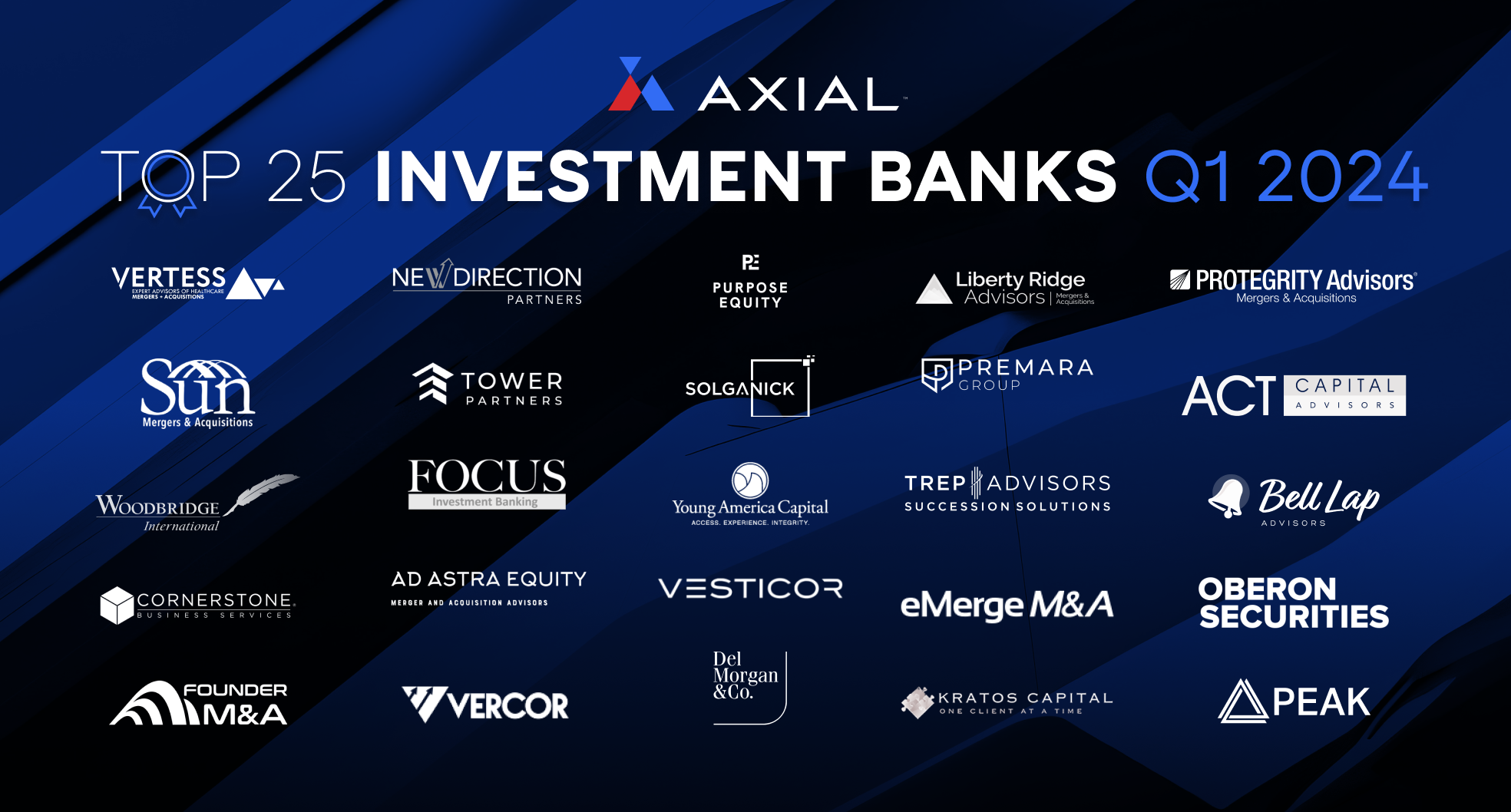
Top 25 Lower Middle Market Investment Banks | Q1 2024
Axial is excited to release our Q1 2024 Lower Middle Market Investment Banking League Tables. To assemble this list, we…
Tags
Private equity rarely takes a textbook approach. The tendency to do things their own way extends to valuation methods, the way they measure returns and the strategies used to achieve superior results for their investors. In a recent academic paper, professors from Harvard and the University of Chicago — universities that churn out a fair number of MDs and private equity partners — explored some of the ways private equity firms are unique in their approach to buying, growing and profiting off of businesses:
Graduated Valuation Methods
The research revealed that while many of the industry’s top executives boast MBAs from elite business schools, these financial sponsors frequently shun discounted cash flow analysis, the academic approach to private company valuation. Instead, they rely on internal rates of return and multiples of invested capital.
“Despite the prominent role that discounted cash flow valuation methods play in academic finance courses, few PE investors use discounted cash flow or net present value techniques to evaluate investments,” the research paper stated. “Rather, they rely on internal rates of return and multiples of invested capital. Furthermore, few PE investors explicitly use the capital asset price model (CAPM) to determine a cost of capital.”
Getting Absolute
GPs also focus on absolute returns instead of relative performance or “alpha”, which sets them apart from other asset classes like mutual funds and hedge funds. The research indicated private equity firms might take this approach because their investors – pension funds, for example – have absolute liabilities that require financing.
The authors of the article used this key denominator to explain private equity’s preference for valuation methods.
“It is possible that because private equity is viewed by many limited partners (and marketed as such by some general partners) as an absolute return investment, nominal hurdle rates are more meaningful than discounted cash flow valuation based upon CAPM discount rates,” they stated.
Reputational Returns
When it comes to determining how private equity firms will achieve these desired returns, the best approach may be to review the background of their principals, according to the report.
The study distinguishes three “types” of private equity investors — those with operational background (coming from consulting, operations, or general management), those with financial background (with investment banking, commercial banking, investment management experience, or having previously served as a chief financial officer), and finally, those with private equity background (coming from venture or another private equity firm).
Nuances between sponsors from these backgrounds include that the private equity set are most likely to leverage operational engineering, while firms started by former investment bankers or CFOs are more likely to use financial engineering and invest in existing management.
Those with private equity backgrounds “are more likely to invest with the intention of adding value, to invest in the business, to look for operating improvements, to change the CEO after the deal, and to reduce costs.”
Exit Strategies
When planning exit strategies, private equity firms once again shun discounted cash flow analysis, instead opting to figure out terminal value by looking at similar companies and transactions.
When determining which organizations are comparable, sponsors first look to firm size and industry, before assessing profit margins, growth and geographic location. Firm riskiness is the final factor they assess.
“PE investors appear to be skeptical of using measures of risk that have strong foundations in academic finance,” the researchers stated.
While these firms may have screened out specific methods they would like to avoid, regardless of whether they are the ones most used by academics and taught in business school programs, they clearly have plenty of tools in their arsenal to help drive growth within their portfolio companies. Private equity firm’s divergence from the norm and resourcefulness is illustrated in the asset classes ability to outperform the broader markets.